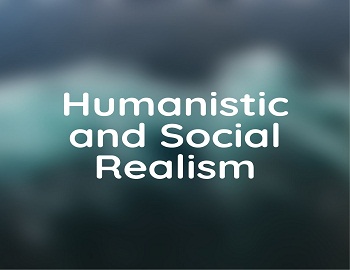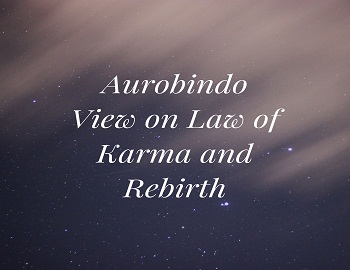Table of Contents
Existentialism:
Existentialism is the youngest philosophy. It represents a revolt against many outlooks and methods of traditional Western philosophy. It is very difficult to find its roots in any of the ancient philosophies. This philosophy emphasizes the importance of an individual and his freedom and responsibility. According to existentialism, the individuality of man is supreme. This ‘individuality’ is greater and more important than the existence of man, nation, and the world. This philosophy recognizes the existence of individuality by opposing the notions of intelligence and nature.
Existentialism emerged as a reaction against both naturalism and idealism. According to naturalism, material phenomena are governed by mechanical laws, and matter life, and mind, though they are different from one another, are nothing but different functions of material phenomena. The actions of man are determined by motives and impulses, which are ultimately functions of matter. Hence man’s sense of freedom is illusory. According to idealism, mind, spirit or consciousness is the ultimate reality; the Absolute is the ultimate ground of everything including the human mind, the Divine will swallow up the human will. Hence human freedom is only an illusion. Thus, both naturalism and idealism deny human freedom. Existentialism is a reason against this falsification of human nature. According to Existentialism, existence in time and space is real; an essence is unreal. Further, an individual is real; and universal is unreal. Although Existentialism realizes the need of society, it does not mean that society should give a secondary place to the individual by exploiting him. Existentialism considers individuality as supreme and considers society as a means of its development.
Although it may be accurately described as a modern 20th-century philosophy yet any account of existentialism must begin with the work of Soren Kierkegaard (Danish theologian 1813-1855).
Meaning of Existentialism:
Existentialism is a philosophy according to which the individuality of man is supreme. This ‘individuality’ is greater and more important than the existence of man, nation, and the world. According to existentialists existence does not mean mere living, but it means maintaining a complete, strong, self-conscious, responsible, and progressive life. It rejects universal and abstract problems and dwells upon subjective awareness.
Existentialism does not attempt to offer a final answer to the basic questions concerning reality, truth, and value. It awakens man’s interest in these questions but does not provide him with answers. Existentialists reject any system that offers a wholesale explanation of man’s relationship to his universe and the ultimate meaning of life. To the existentialist, the starting point for all understanding is the recognition of his individual Existence in an Indifferent world.
Titus has defined Existentialism as an “attitude that emphasizes human existence that is, the distinctive qualities of individual persons rather than man in the abstract or nature and the world in general.”
Man’s fundamental drive is the urge to exist and to be recognized as an individual.
Fernando says, “Existentialism is a type of philosophy, which endeavors to analyze the basic structure of human existence and calls individuals to an awareness of their existence in its essential freedom.”
Existentialism is an attempt to reach the inmost core of human existence in a concrete and individual fashion.
In short, we may say that existentialism is essentially the philosophy of man and his attempt to reaffirm and regain the lost status in this advanced technological and mechanized society. “Man is everything” is the watchword of existentialism. Individuality if supreme and society is a means of its development.
Postulates of Existentialism:
(1) Man’s Existence- For the existentialist, the starting point for all existence is the recognition of the individual existence which came first. Masn is now in the process of determining his essence. Existence precedes essence. It means that first of all man exists, turns up, appears on the scene, and only afterwards defines himself. Out of the basic reality of his existence, he develops his unique self through Choices made among the alternatives present by his environment. But man is also responsible for the choices he makes.
(2) Knowledge and Truth- Existentialism accepts no knowledge of truth that assumes to precede man’s existence. Existentialists consider “self-know thyself” as the basic premise of this philosophy. Choice is the key word in existential views about the nature of knowing. All knowing and truth arrived at by knowing is individual and subjective, Self knowledge is the key to all knowledge. Man becomes the source of his own knowledge and truth by determining through his choices and experiences that which is real for him, and by accepting responsibility for his actions and beliefs based upon his choices.
(3) Man is not alone in the World- Man is not alone but connected to other men; he communicates with others; therefore he cannot live in a state of anarchy. He is the product of his choices. He is therefore an individual who is different from other persons. The real living person is more important than any statement we can make about him. Man’s existence is more important than his essence.
(4) Freedom and Responsibility- The existentialist considers that each man has the responsibility of creating his own values and in doing so he is choosing freedom and responsibility. In this way, the existential view gives man freedom but requires responsibility.
(5) Emphasis on Subjectivity- Kierkegaard has emphasized the essentially subjective nature of human existence. It is based on man’s assistance on the complete freedom to choose and to become what he wills himself to become. Existentialism believes that all human values are based on subjective experience.
(6) No acceptance of Readymade Concepts- Existentialism believes that man cannot accept the readymade concepts of existence forced upon him. He is a free agent capable of shaping his own life and choosing his own destiny. Thus we cannot treat people as machines, first pulling one lever, then another, and expect predictable results.
(7) Man is not Complete- For the existentialists, man is not complete; he is in the process of “becoming”. Man has to meet the challenge. He marches on the process of becoming a complete man to reach his completeness.
(8) No faith in Absolute Values- Existentialists do not believe in absolute values. They argue that as long as the empirical spirit remains alive, it must remain open to revision and correction and hence it cannot adhere to fixed values. All values emerge from personal awareness, personal consciousness, and personal experiences.
(9) Centre of Existence is Man- Existentialism holds the view that the centre of existence is a man rather than truth, laws, principles, or essence. Man is characterized by decision, will, and choice. Although existentialists emphasize man’s place in the world or man’s relationship to being or even man’s relationship to God, they still indicate that there is certain uniqueness and mystery about the human person which Science and rational thinking cannot explain.
(10) Contingency of Human Life- Existentialism believes that the existence of a person means his period from birth to death. There was nothing before birth and would be nothing beyond death. This contingency is often characterized by an experience of dread, horror, anguish, solitude, bewilderment, uncertainty and finally limited by death. Man is the only being who knows that sometimes he will die. He must learn to live with anguish, dread, and anxiety.
Characteristics of Existentialism:
(1) No aim of System-building- Existentialism does not aim at system-building. Its approach is psychological. It analyses the living experience of an individual existential philosopher with depth, but it does not prescribe a code of analysis. It analyses dread, anguish, despair, fidelity, hope, love, etc., and attempts to uncover their meanings.
(2) Emphasis on Human Existence- Existentialism emphasizes human existence, man’s vital experience in intimate relation with his body, the world, and society. Man is the central theme of existentialism. Neither God nor the world apart from his or its relation to human existence is the concern of existentialism. Some existentialists are atheists while others are theists. But even those who are theists lay greater stress on man who experiences God, or the meaning of God in human experience. Existentialism emphasizes man’s interception and evaluation of, and active response to, the world and human society. It is not concerned with the nature of the world as it is in itself.
(3) Draws a distinction between Essence and Existence- Existentialism draws a distinction between “essence” and “existence”. Idealists regard essence, universal concept, or thought as prior to essence. But existentialists regard existence prior to essence. Vital human experiences as man lives constitute his existence. Its depth has to be probed and meanings to be deciphered. A man should not be dehumanized, idealized, or conceptualized. Man as he is, as he lives with his actual experience in all its layers, has to be analyzed, interpreted, and evaluated.
(4) Emphasizes on Subjectivity of Man- Existentialism stresses the subjectivity of man. Naturalists and materialists reduce man to matter and motion and explain him by material phenomena. Realism reduces the mind, subject, ego, and self, to objects, and misses its distinctive character of subjectivity. Marxian dialectic materialism regards man as a product of matter and motion and society, which is ultimately material. It also reduces man to objects and their interactions. But existentialism emphasizes the subjective inwardness of human experience and condemns pan-objectivism. Human experience can neither be reduced to thought nor to matter. Existentialism is a reaction against idealism and materialism.
(5) Existentialism lays stress on the Individual- Existentialism lays stress on the individual. It arises from the moral impulse and is based on distinctive ethical affirmation.
(6) Existentialism stresses Freedom of the Individual- In spite of the individual’s being determined by the body, the world, the society, the past, and the present history and culture, he has the freedom to choose his goal and realize it at least partially despite his limitations. He makes himself what he chooses to be. Existentialism cannot be a party to man being deprived of his freedom which constitutes the core of his being.
(7) Existentialism is Dominated by Pessimism- Emphasizing the individual’s concrete living experiences, in its depth, with its solitariness, subjective inwardness, dread, despair, and anguish, existentialism tends towards pessimism. The existentialist’s pessimism is a bracing sense of menace and challenge of existence. They face the evils of life, make active endeavors to overcome and fight them, and try to make life liveable and ennoble it.









Comments (No)